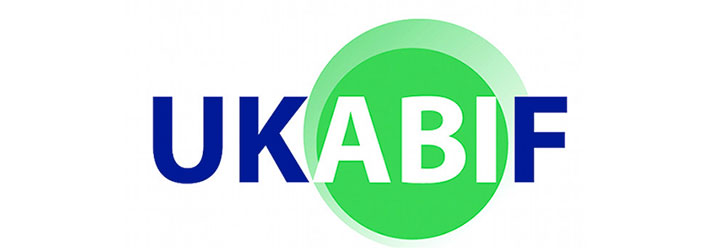
An acquired brain injury (ABI) is defined as a non-degenerative injury to the brain which has occurred after birth and includes traumatic brain injuries (TBIs), i.e. those caused by road traffic accidents, falls and assaults, and non-TBIs i.e. those caused by strokes and other vascular accidents, tumours and also infectious diseases. Approximately one million people live with the effects of an ABI in the United Kingdom (UK) and require specialist rehabilitation services and support both in hospital and the community.
There is very little accurate and reliable data on the provision of healthcare services for people with ABI in the UK. The National Institute for Clinical Excellence (NICE) estimates that the acute hospital care costs for TBI are £1 billion annually (this does not include all types of ABI) and Gustavsson et al (2011) stated that the overall cost of TBI in the UK (and again an underestimate for ABI) was approximately £4.1 billion.
In 2001, The Health Select Committee published their Third Report into Head Injury (Health Committee 2000-1) with a list of 28 conclusions and recommendations; most have not been acted upon. Although the National Service Framework for Long Term Neurological Conditions has been in place since 2005, very little progress has been made and rehabilitation services continue to vary hugely around the UK.
In July this year, the UK Acquired Brain Injury Forum (UKABIF) a membership organisation and charity that aims to promote better understanding of all aspects of ABI, launches a Campaign ‘Life after Brain Injury? Improve Services Now’ to improve rehabilitation services and support for people with ABI. UKABIF’s Manifesto ‘Life after Brain Injury – A Way Forward’ outlines the necessity of acute and early access to rehabilitation for adults with ABI to ensure optimal recovery, focusing on the need for specialist neurorehabilitation teams to manage care pathways and the cost implications of not providing adequate rehabilitation. Published studies clearly show that by providing rehabilitation, the savings made offset the costs, even when rehabilitation is not carried out immediately after injury. Over a lifetime, optimal recovery results in significant savings to health care costs.
Acute and early access to rehabilitation services
Rehabilitation after an ABI should start acutely to prevent complications, with the patient’s care pathway clearly defined, and referral to a local specialist neurorehabilitation service at the earliest opportunity; this is crucial and often overlooked. Patients who have an early referral programme in the acute stages of recovery have significantly better social integration, emotional well-being and vocational functioning (Reid-Arndt et al 2007). Turner-Stokes (2008) demonstrated the effectiveness of early intensive rehabilitation with specialist programmes for those with complex needs, and specialist vocational programmes for those with potential to return to work. Residential, social and behavioural rehabilitation programmes can all decrease the number of care hours needed, which also increases the brain injured person’s capacity for independent social activity (Wood et al 1999). In a study up to two years post-injury, patients showed a 54% reduction in the care hours required compared to pre-admission; patients between two and five years post-injury showed a 33% reduction, and patients over five years post-injury showed a 21% reduction (Wood et al 1999).
Managing the Rehabilitation Programme
If someone has been assessed as needing rehabilitation they should be referred to a ‘post-acute’ rehabilitation centre. However, in many parts of the UK there is no suitable rehabilitation facility and people with brain injuries may have to go home too early or go to inappropriate places, such as nursing homes, where insufficient rehabilitation is provided. The independent sector provides much of the high quality brain injury rehabilitation available in the UK and a number of organisations offer specialist facilities and provide services to meet the needs of a range of people with ABI including the most difficult cases.
Following a specialist rehabilitation programme, ABI patients show a significant reduction in dependency at discharge, as measured by the Functional Independence Measure (Turner-Stokes et al 2006). More intensive rehabilitation is associated with rapid functional gains once the patient is able to engage (Turner-Stokes et al 2011).
A multidisciplinary team (MDT) is required with an expertise in neurorehabilitation, comprising a core medical team and additional professionals depending on the nature of the brain injury; integrated services and an MDT rehabilitation programme promote brain recovery and enable people to recover more quickly and efficiently (Turner-Stokes et al 2011). The team should be led by Allied Health Professional specialists e.g. a physiotherapist with access to a Consultant in Neurorehabilitation over a timescale that is determined by the patients’ progress and gains.
What is the Way Forward?
UKABIF is asking for the following:
- Appropriate commissioning for specialist brain injury rehabilitation should be made compulsory and each clinical commissioning group should have a named neurological lead.
- Funded National Neuro Networks should be established to ensure neurological pathways are available throughout the stages of recovery (patient journey).
- A National Audit of Rehabilitation should be carried out and the collection and reporting of accurate data on newly ABIs made compulsory by all providers along the patient journey, from Acute to Community services*
- A review is required of The Health Select Committee Report and the National Service Framework (NSF) for Long Term Neurological Conditions.
- As implemented with Stroke though Healthcare Emergency Planning and the Care Quality Commission
We need your help
To support our Campaign, please ensure that your team has a named neurological lead and if not, request one and review the information and support available for people with an ABI in your area. The full document is available to view on our website http://www.ukabif.org.uk. For further information on how to support this campaign, please contact:
Chloe Hayward, UKABIF, T: 0845 6080788, E: info@ukabif.org.uk http://www.ukabif.org.uk